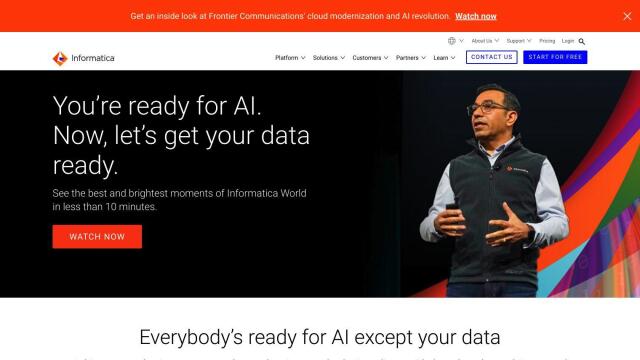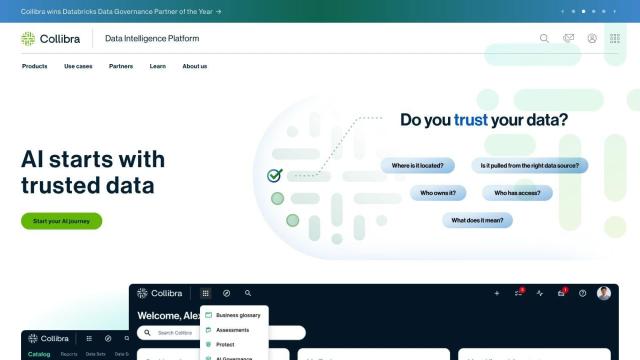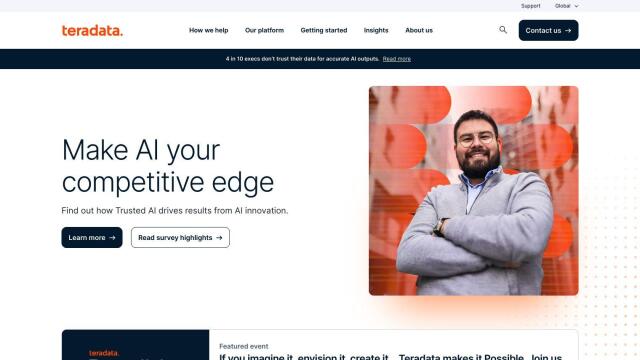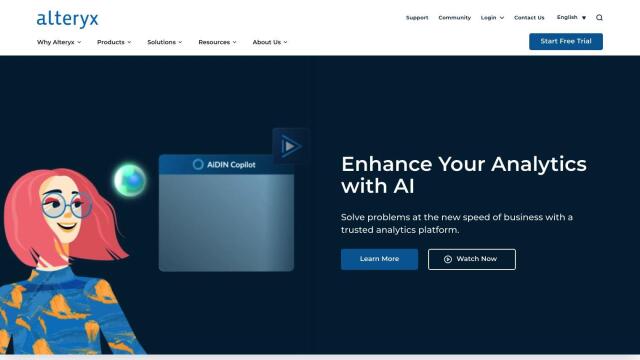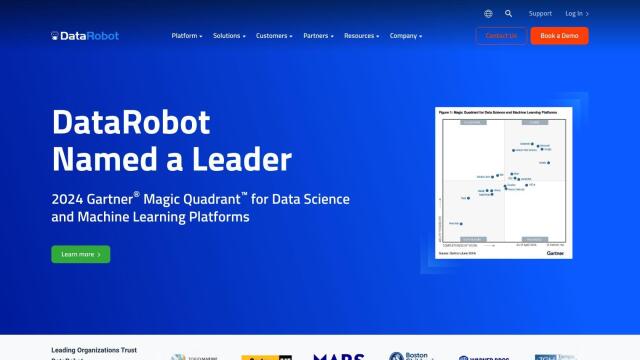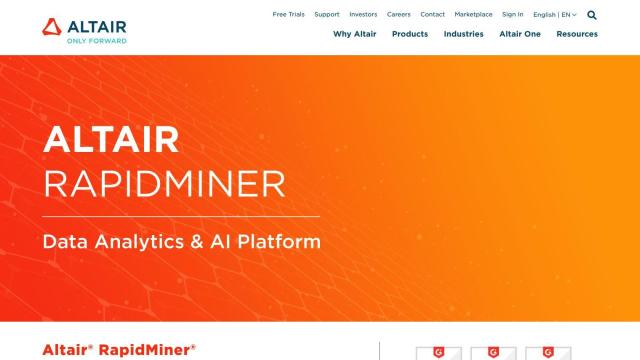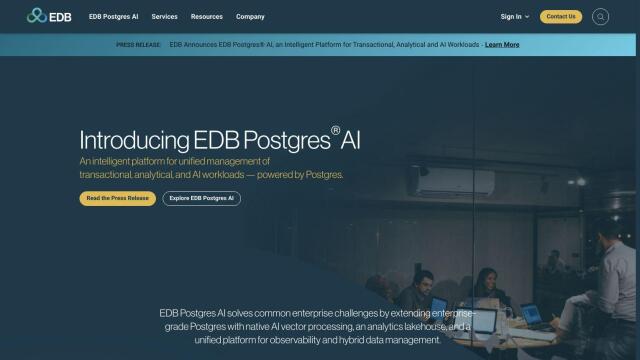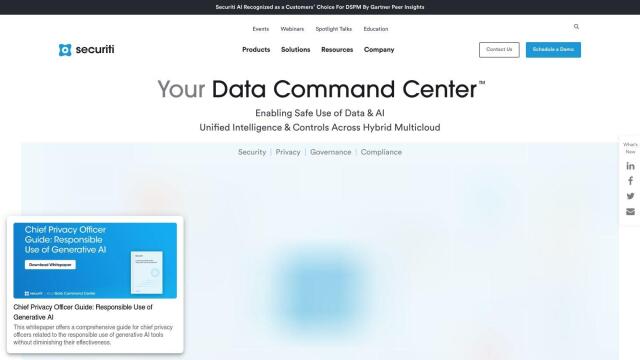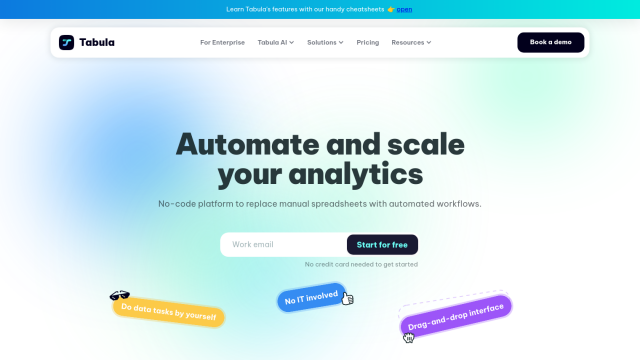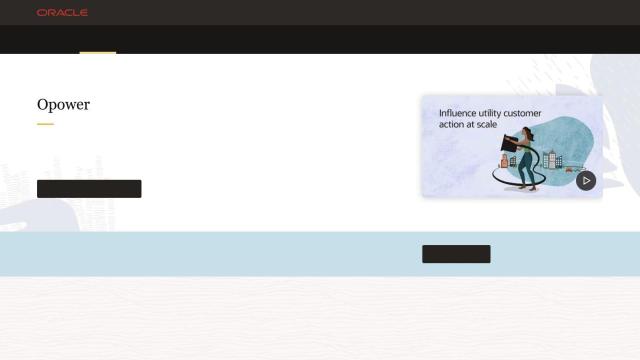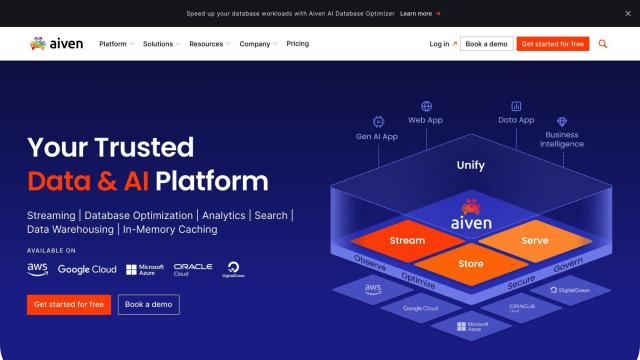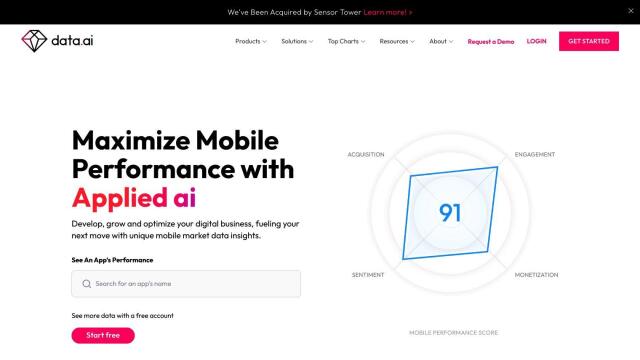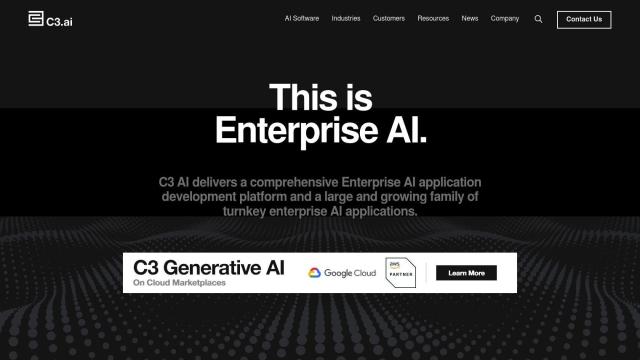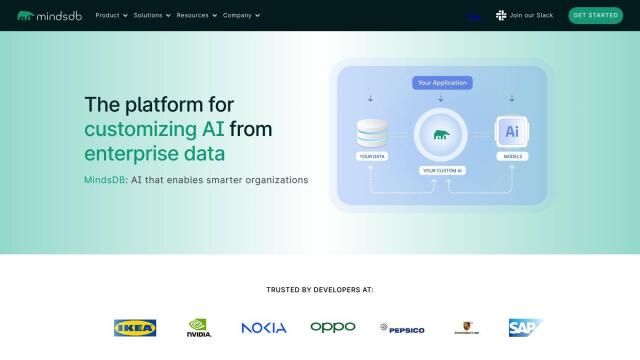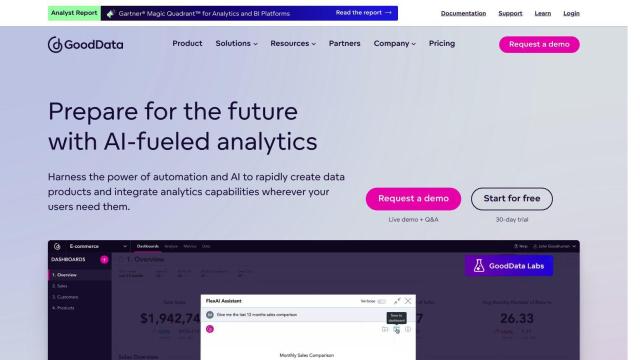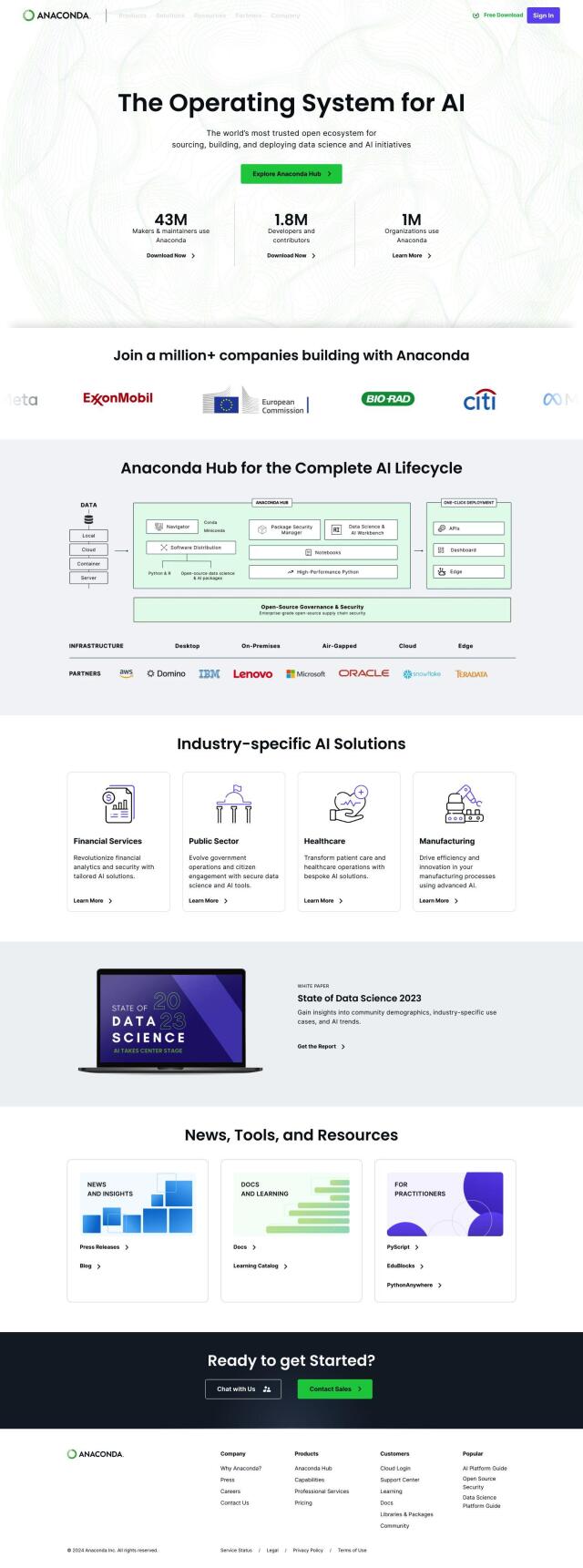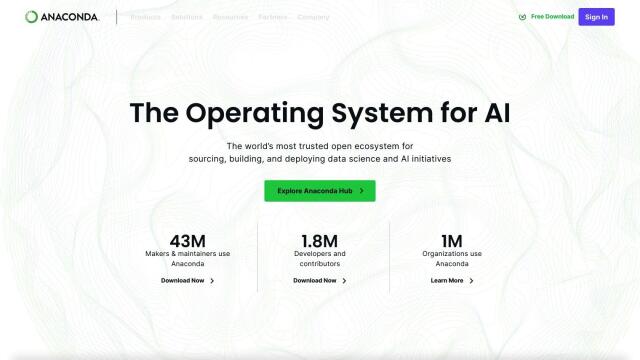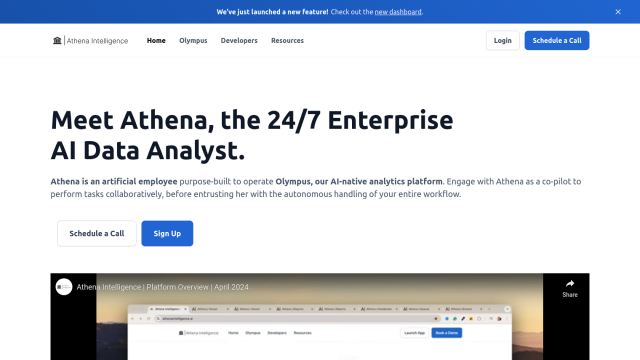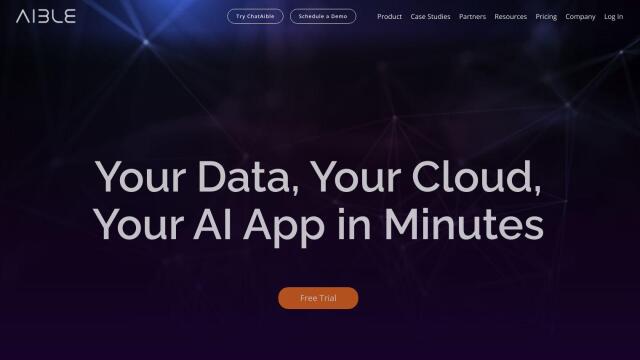
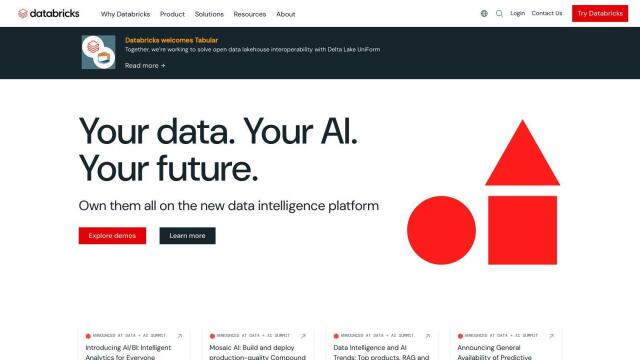
Databricks
If you're looking for Informatica alternatives, Databricks is another top choice. Generative AI is built in to let people combine data, analytics and governance, and to build and run AI applications on their own data. Databricks' data lakehouse architecture is designed to handle a broad range of tools and integrations, and it's a unified platform for data management and AI applications.

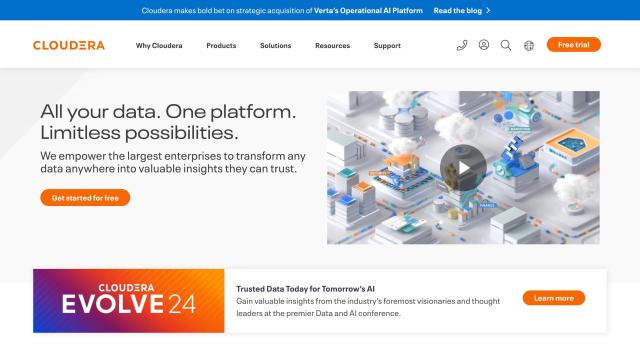
Cloudera
Another good option is Cloudera. The hybrid data platform lets you ingest, process and analyze data securely in the cloud and on-premises environments. Cloudera's data services span a broad range of data types, and its use of Apache Iceberg technology helps ensure data is reliable and flexible. That makes it a good choice for industries like financial services, manufacturing and health care.

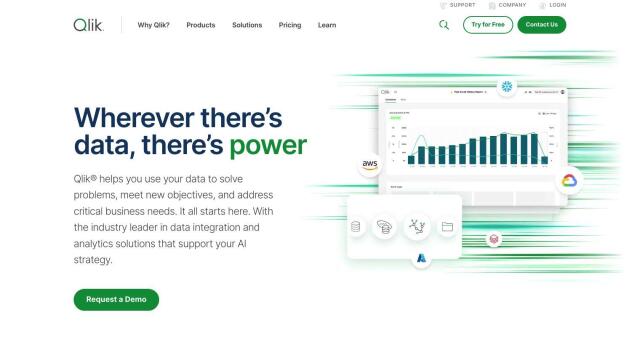
Qlik
Qlik is another option worth considering. It offers a range of products for data integration, analytics and artificial intelligence. With features like data streaming, application integration, data lake creation and AI-powered analytics, Qlik offers end-to-end data solutions that can be customized and scaled to meet a wide range of needs.

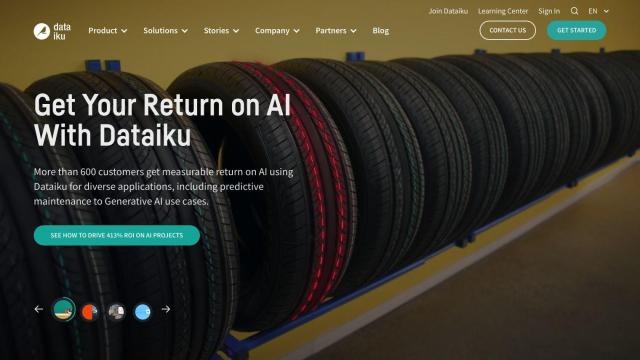
Dataiku
Dataiku is another option. It's geared to make AI useful for mainstream applications, and it spans a range of data project needs, including data preparation, machine learning and MLOps, with a strong collaboration and governance focus. Dataiku is a Leader in the Gartner Magic Quadrant for Data Science & ML Platforms, and it offers a variety of options for different teams and customers.

